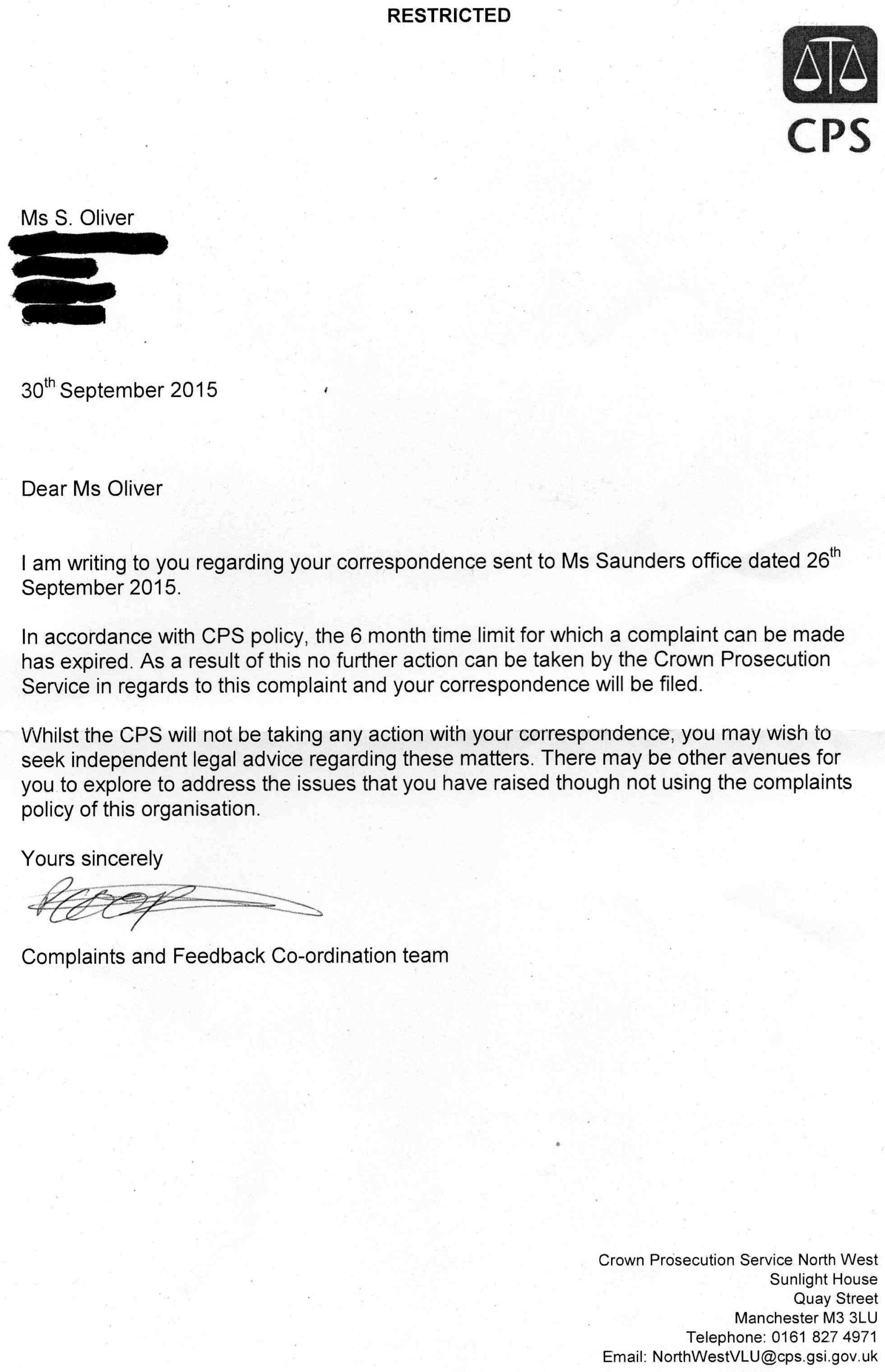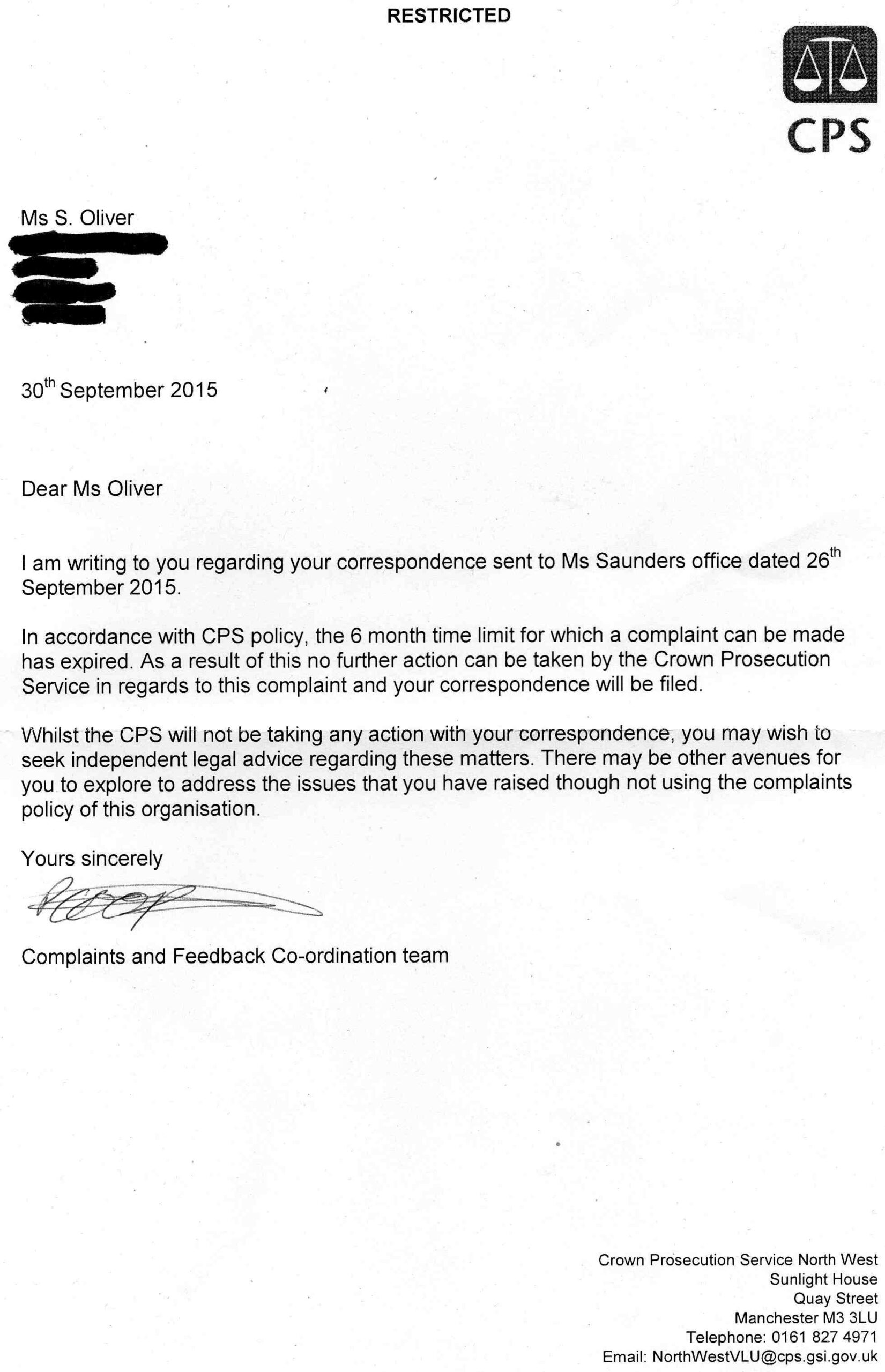They promised in the full council meeting of 4th of October that they would represent me. No response yet to this letter to them.
Councillor Lisa Smart/Councillor Angela Clark
Stockport Town Hall
Edward Street
Stockport
SK1 3XE
Date 10/10/2023
Dear Councillor Smart/Clark
You undertook at the full council meeting at Stockport Town Hall on 4th October 2023 to represent me. My questions have been erroneously branded as being vexatious by Stockport Council from the last time it was under Liberal Democrat control. It was claimed that I had been rude and offensive. The Information Commissioner decided that I had not been rude and offensive, but was asking too many questions. I have that evidence, as does Stockport Council. The Council has no evidence of my ever having been rude or offensive. I need you to examine the relevant evidence yourself and decide if the questions were rude, offensive, wasting councillor/officer time or in the interests of public safety or the public purse. I draw your attention to the relevant government advice, which was in place at the time these questions were first raised:-
https://www.gov.uk/government/news/armchair-auditors-are-here-to-stay
It is an offence under the Fraud Act 2006 to act deliberately to cause someone (in this instance the council taxpayer) a loss.
Section 2 – Fraud by False Representation It is an offence to commit fraud by false representation. The representation must be made dishonestly. The person must make the representation with the intention of making a gain or causing loss or risk of loss to another.
- You are building the Vale View School too small deliberately, I told Stockport Council. Your question is vexatious and you are wasting our valuable time with your constant questions, they replied.
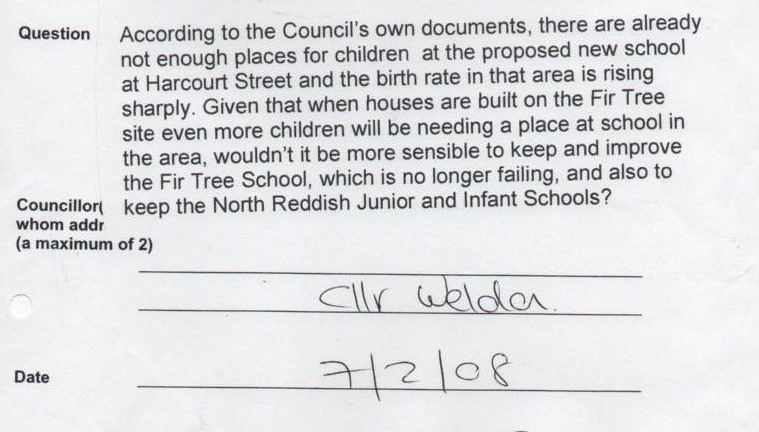
My question to the full council meeting – deemed vexatious.
- But the Council knew in April 2006 that the school was being built too small, so why was my council meeting question on the subject deemed vexatious in February 2008?

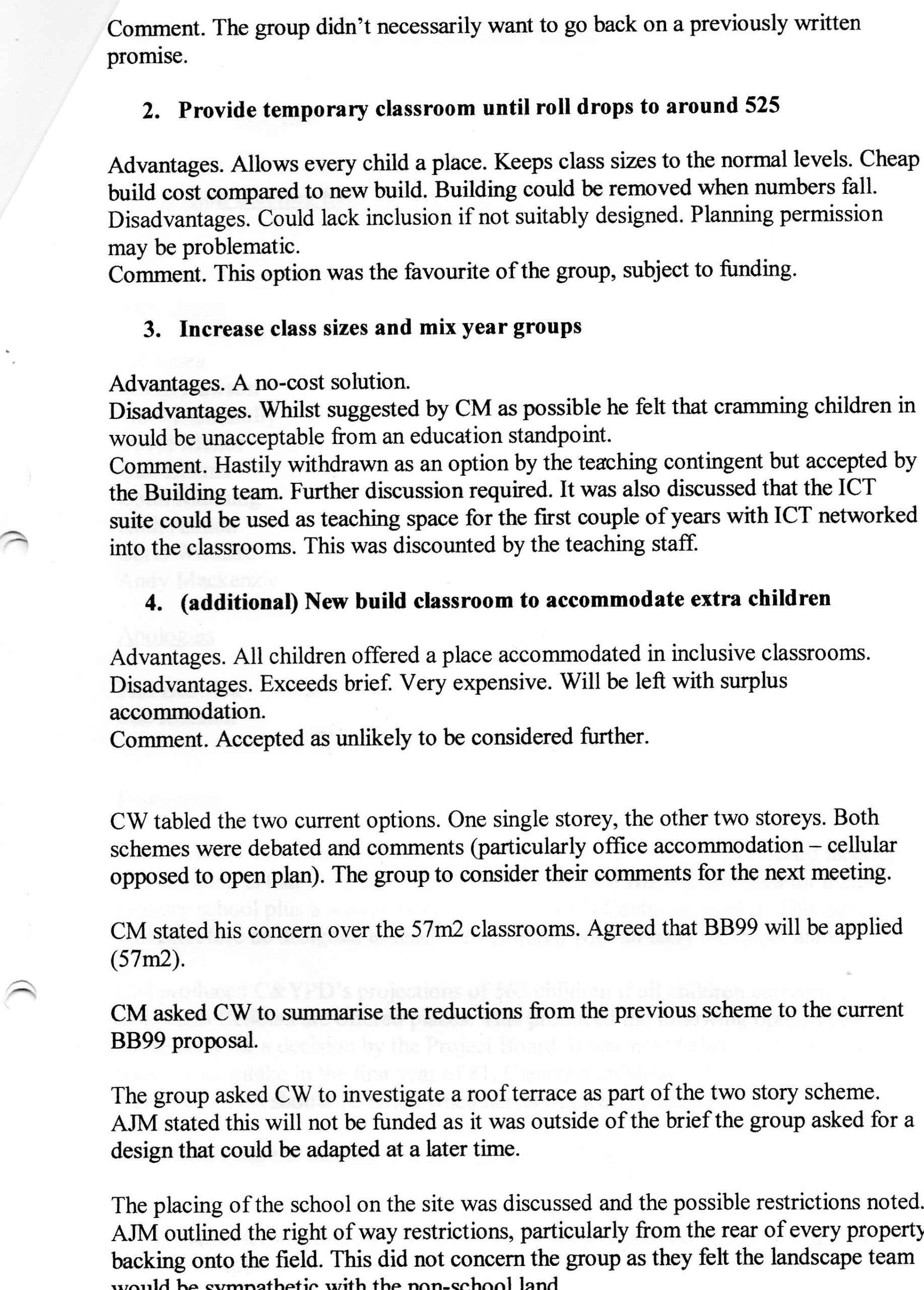
- The birthrate in the area was rising sharply.

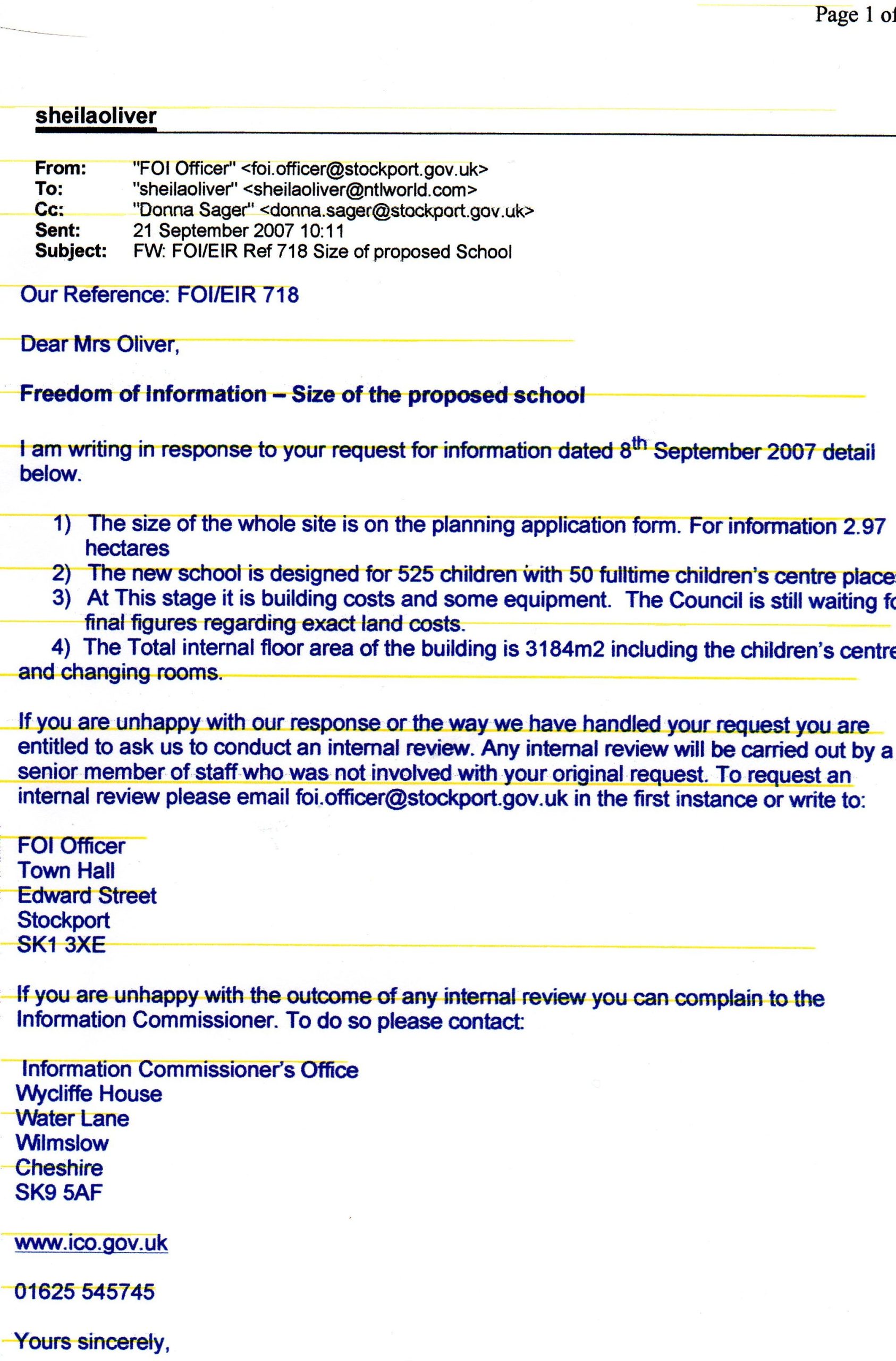
The Council stated in the minutes of a meeting on 26th April 2006 that 555 pupils needed a place at Vale View School, so the above FOI response would appear to be incorrect – also an offence to give an untrue response.
- On 10th of March 2006 the Council knew the school was being built too small. “I stress the need for confidentiality.”
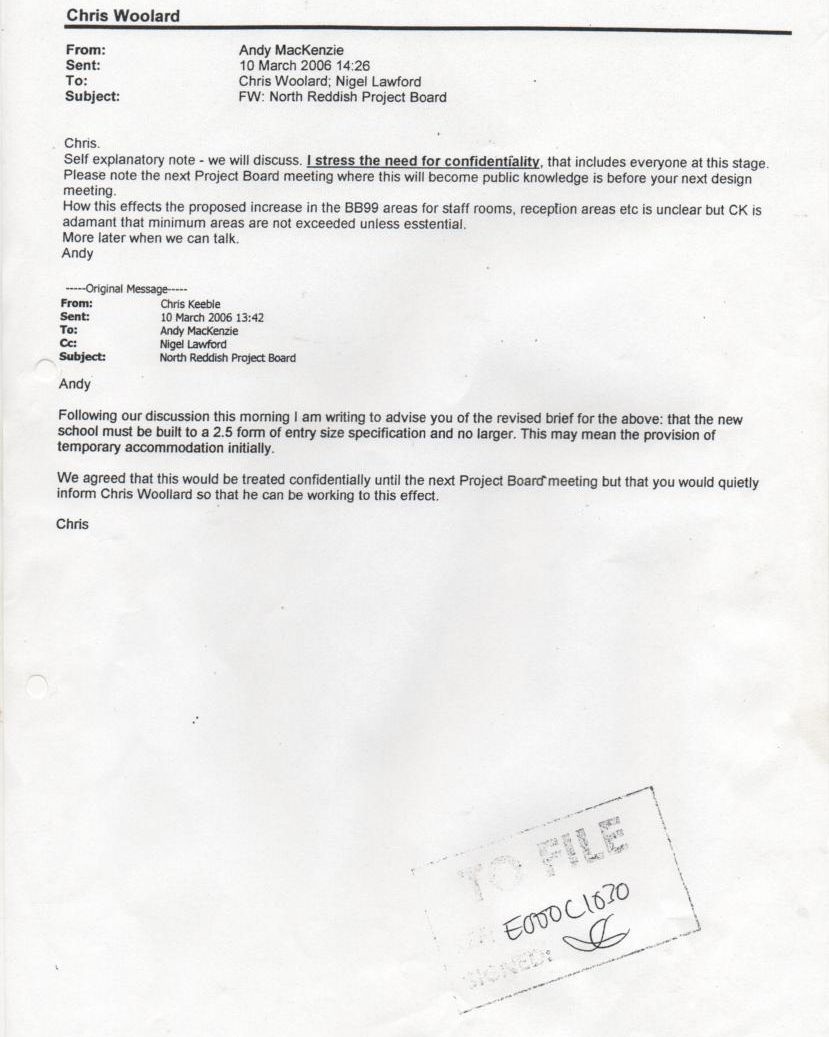

- After the school opened it was admitted that a share of 81 million pounds would have to be spent on school places including North Reddish.
I look forward to your decision as to whether this was well-researched questioning about which nothing was done, or my being a nuisance to busy and important council officers and councillors. It is a simple matter for you to read through this evidence. There will be no need to drag this out over weeks and months and I look forward to your response with interest.
Yours
Sheila Oliver
c.c. Councillor David Meller
Town Hall
Stockport
SK1 3XE


 25% discount available if you buy direct from the publishers:
25% discount available if you buy direct from the publishers: